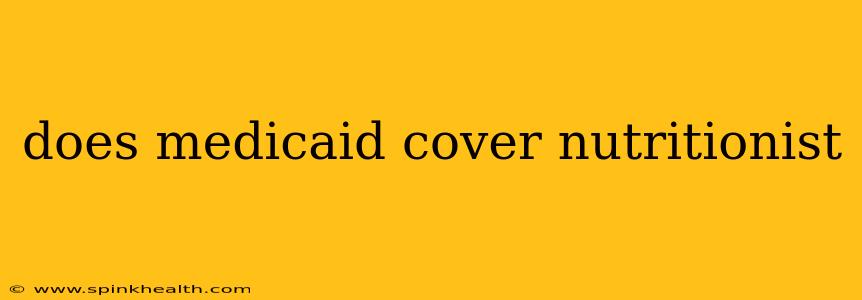Does Medicaid Cover Nutritionists? Navigating the Nutritional Needs of Medicaid Recipients
The question of whether Medicaid covers nutritionists is a common one, and the answer, unfortunately, isn't a simple yes or no. It depends on several factors, creating a somewhat intricate landscape of coverage. Let's unravel this complexity together, exploring the various scenarios and considerations involved.
Imagine Sarah, a single mother struggling to make ends meet. She's on Medicaid and recently diagnosed with gestational diabetes. She desperately needs nutritional guidance to manage her condition and ensure a healthy pregnancy. Will Medicaid cover a visit to a registered dietitian or nutritionist? That's the question we'll explore.
Medicaid's approach to nutrition coverage is highly variable. It's not a uniform national policy; each state manages its Medicaid program independently. This means coverage for nutrition services can differ significantly from state to state. Some states may offer generous coverage, while others may offer very limited or no coverage at all.
What Services Might Be Covered Under Medicaid?
While comprehensive nutrition counseling might not be routinely covered in all states, Medicaid often covers specific nutritional services related to certain conditions or circumstances. This can include:
-
Medical Nutrition Therapy (MNT): Many states cover MNT for specific diagnosed medical conditions like diabetes, kidney disease, or heart disease. This usually involves a registered dietitian creating a personalized meal plan and providing ongoing counseling. However, pre-authorization is often required.
-
Nutrition Education Programs: Some Medicaid programs may offer or partially fund nutrition education programs, particularly for pregnant women, new mothers, and children. These programs often focus on healthy eating habits, weight management, and preventing nutrition-related diseases.
-
Services Provided by Specific Professionals: The type of healthcare professional providing the nutrition services can also affect coverage. Registered dietitians (RDs) or licensed dietitian nutritionists (LDNs) are more likely to be covered than other nutrition professionals. Check your state's Medicaid guidelines for specifics.
Does Medicaid Cover Nutritionists for Weight Loss?
This is where things become even less clear-cut. Medicaid generally does not cover nutrition services solely for weight loss. The focus is typically on addressing medical conditions or managing specific health risks. If weight loss is a necessary component of managing a diagnosed condition (like obesity-related type 2 diabetes), then nutrition counseling might be covered. But weight loss alone is rarely a sufficient justification for Medicaid coverage.
How to Determine Coverage in Your State
Navigating Medicaid's coverage for nutrition services requires diligence. Here's how to find out what's covered in your specific state:
-
Check Your State's Medicaid Website: Each state's Medicaid agency has its own website containing detailed information about coverage guidelines. Look for sections on "covered benefits" or "provider directories."
-
Contact Your Case Manager: If you're already enrolled in Medicaid, contact your case manager. They can provide personalized information about your eligibility for nutrition services.
-
Consult Your Doctor: Your physician can recommend nutritionists or dietitians who participate in your state's Medicaid program and can help navigate the process.
-
Review Your Explanation of Benefits (EOB): If you've already received nutrition services, review your EOB to understand what was covered and what was not.
In Sarah's case, her gestational diabetes likely makes her eligible for MNT under Medicaid, but she needs to confirm with her doctor and the state Medicaid agency. The path to accessing these valuable services requires proactive communication and careful investigation. Don't be afraid to ask questions and seek clarification to understand your rights and options. Your health and well-being are worth the effort.

